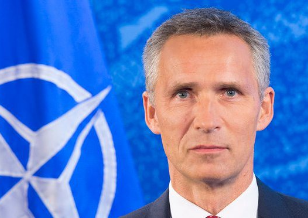At this meeting, Ukraine and NATO also agreed to launch a number of new initiatives to deepen cooperation in the context and to support reform priorities in Ukraine.
These new initiatives are reflected in a joint document entitled "Strengthening NATO-Ukraine Cooperation: Short-Term Measures", based on proposals from Ukraine and Allies. These measures will be implemented within the framework of the NATO-Ukraine Action Plan, taking into account the decision to "launch an Intensified Dialogue on Ukraine's aspirations for membership and relevant reforms without taking into account any possible decisions of the Alliance".
Receiving an invitation in Vilnius to join the Intensified Dialogue six months after the election of the President of Ukraine was a strong positive signal in support of our country's Euro-Atlantic course, the Ukrainian Government's deep democratization reforms in socio-political, economic and military spheres.
The full official name of the Intensified Dialogue (IC) is "Intensified Dialogue with NATO on Membership and Related Reforms".
The possibility of launching an intensified dialogue with Partnership for Peace countries was first announced at the 1997 Madrid Summit in Madrid.
In particular, in Article 8 of the Madrid Declaration on Euro-Atlantic Security and Cooperation (the text of the declaration is available on the NATO website: www.nato.int), adopted following the meeting of the NATO North Atlantic Council at the level of Heads of State and Government on 8 July 1997, among other things, it is stated, “We (Heads of State and Government of NATO member countries) also intend to continue an intensified dialogue with those countries wishing to become members of NATO or, conversely, wishing to engage in a dialogue with NATO on membership issues. To this end, this intensified dialogue will cover a wide range of political, military, financial and security issues related to possible NATO membership, but without implications for any possible NATO decision. This dialogue will include EAPC meetings, as well as periodic meetings with the North Atlantic Council at ambassadorial level, the NATO International Staff and other relevant NATO bodies. " All Partner countries wishing to become members of NATO or intending to consult with NATO on membership issues can participate in the IS, the first formal NATO membership preparation program. All 10 "new" NATO members that joined the Alliance in 1999 and 2004, as well as all current members of the Membership Action Plan (MAP), have passed the IS stage.
After the introduction of the MAP in 1999 as the main program of preparation for the accession of graduate countries to the Alliance, the IDF began to act as a preparatory stage for the MAP.
According to the Madrid Declaration of Madrid, the initiation of an IDF with a Partner country does not lead to any commitment on the part of NATO to decide on the membership of a Partner country in NATO at any stage.
Once a decision has been made to launch an ID with a partner country, it is invited, as a first step, to submit its Initial Discussion Paper. The document details the country's position on NATO's important issues, reaffirms its commitment to meeting the requirements of the NATO Enlargement and MAP Survey, and sets out the questions to be expected from NATO.
The IS includes periodic meetings with the North Atlantic Council at ambassadorial level (up to 2 per year), the NATO International Staff Secretariat Group (up to 3 per year) and, at the request of a member country, with other NATO bodies. The NATO Panel of Experts, which is a major Partner of the participating States in the IS, includes representatives of the International Secretariat and other Allied bodies relevant to membership issues. This group is headed by the Assistant Secretary General for Political Affairs and Security Policy. Experts from relevant ministries and agencies, led by the Deputy Minister of Foreign Affairs or Defense, are expected to participate in the consultations at this level from the partner country. Meetings are usually held in Brussels.
IS meetings cover a wide range of political, military, financial and security issues related to NATO membership. They aim to enable candidate countries to explain the real meaning of their intentions and to provide additional information on relevant issues. Transparency of the ID process vis-à-vis other partner countries is ensured through review briefings on this subject during regular meetings of the Euro-Atlantic Partnership Council (EAPC) (at the level of ambassadors, the Political Committee or the Political-Military Steering Committee) or, if necessary, ad meetings. hos for interested partners.

